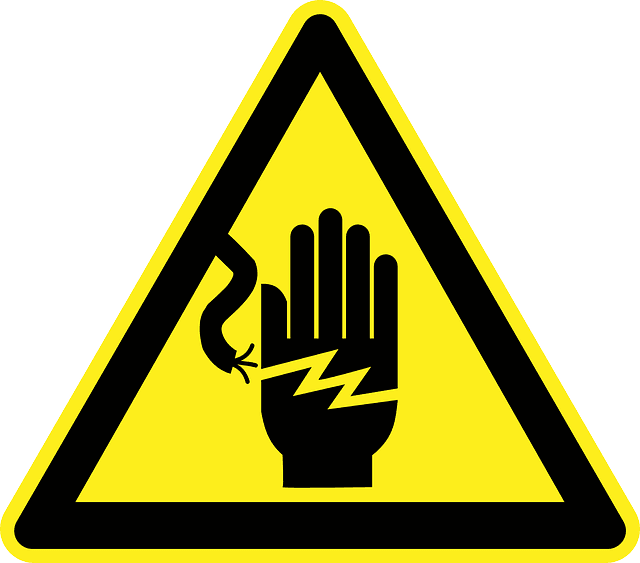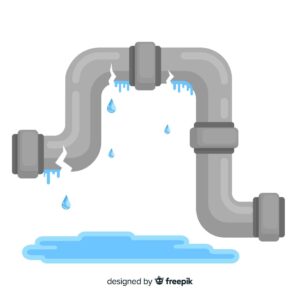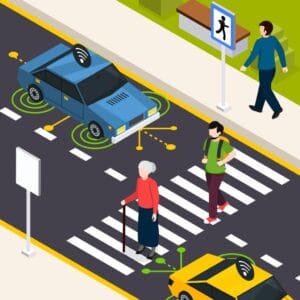Electricity is an essential part of our lives; we rely on it to clean our homes, cook food, and run our households. However, very few people give a thought to electrical safety in their homes. Electric short circuits are a significant cause of house fires, but simple electrical safety tips can help you avoid accidents at home and keep your family safe.

Here are eight safety tips to help you avoid electrical hazards in your home –
1. Keep Your Electrical Appliances Away from Water
Electrical appliances should not be near water or moisture of any kind. Make sure that all your electrical devices stay away from sources of water and humidity. If an appliance falls into water or gets wet by accident, do not attempt to retrieve it or unplug it right away. Switch off the home panel board to cut off the electricity supply, and only then touch the appliance. Make sure the appliance is completely dry and checked by an electrician before you use it again.
2. Get Your Appliances Serviced and Repaired Timely
If an appliance is repeatedly malfunctioning or giving you shocks when using it, it is a sign that it needs maintenance or repairs and you must learn how to do pat testing so you can regularly conduct these tests and know about energy input and output. Look after your appliances by servicing them on time and getting them repaired by a professional electrician whenever required. Continuing to use a faulty appliance may result in an electrical hazard.
3. Install a Ground Fault Circuit Interrupter (GFCI)
GFCI or a ground fault circuit interrupter is a safety device easily installed in any home. GFCI detects current leakages in electrical circuits and shuts off the electrical supply to that receptacle immediately – to prevent electric shocks and fires. You should opt for a GFCI if you have multiple electricity outlets near water or close to one another in your home.
4. Make Sure You’re Using the Right Size of Circuit Breakers and Fuses
Faulty equipment is what causes short circuits in houses. Using circuit breakers and fuses of an unsuitable size may cause them to fail when you need them the most. Ask for the advice of your electrician when purchasing electrical equipment to find a suitable size.
5. Use Outlet Covers
If you have babies or young children in your home, you may not want them playing near electricity outlets and sticking their fingers into the plug points. Use outlet covers to cover up the plug points and prevent children from playing with electric outlets.
6. Avoid Using Electrical Outlet Stretching Devices
Your home’s electricity system can only support a limited number of devices. Using a single electrical outlet to power multiple devices may lead to an electrical hazard. Overloading electric outlets is a recipe for trouble. Use limited appliances or use a circuit-breaking device to prevent electrical overload.
7. Replace Broken Wall Plates
Electrical wall plates are an essential part of your home’s electricity and wiring system. Broken wall plates can cause your or your children’s hands to come in contact with the wiring behind the switches leading to an accident. Ensure to replace all broken wall plates and switchboards as soon as possible.
8. Treat Your Cords with Respect
Power cords should be treated gently and never exposed to excessive heat or pressure around the house. Treat your electrical cords with respect and never tack them down too tightly; regularly check to ensure they are not trapped under any furniture or other equipment.
Awareness can be your greatest friend in ensuring electrical safety in your home. You may not know how to fix a short circuit but by following electrical safety tips, you can avoid a short circuit in your home. Follow the simple tips given above to keep your electrical equipment in top shape and safe to use for everyone in your family.
Author:
Jeson Pitt works with the marketing department of D&F Liquidators and regularly writes to share his knowledge while enlightening people about electrical products and solving their electrical dilemmas. He’s got the industry insights that you can count on along with years of experience in the field. Jeson lives in Hayward, CA, and loves to explore different cuisines that the food trucks in the Bay area have to offer.











